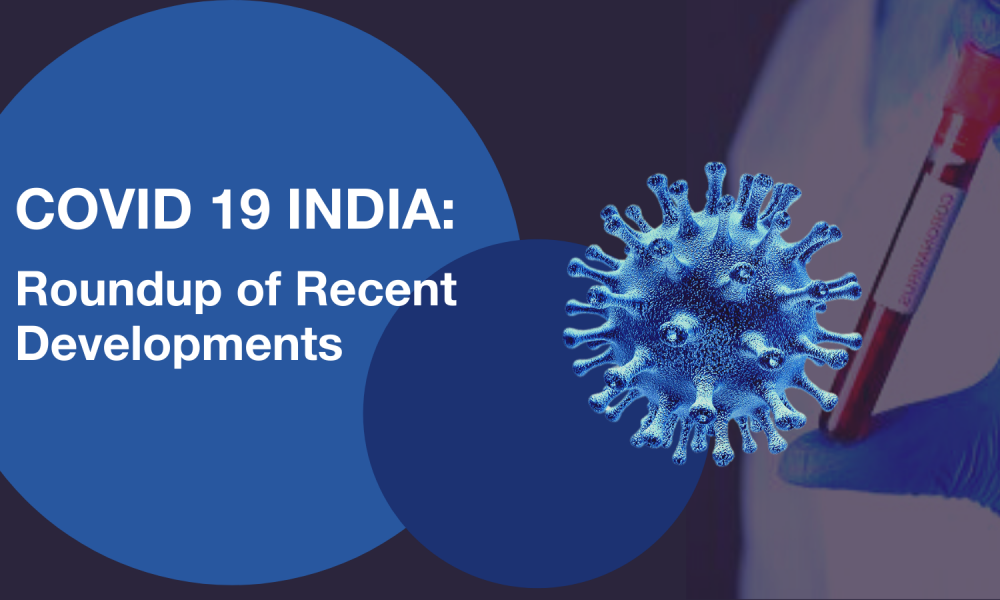
COVID-19 INDIA: Roundup of Recent Developments
Encumbered by the shortage of masks and other personal protective equipment, multiple doctors in government hospitals in India have contracted the novel coronavirus. The healthcare workers were complaining about the lack of PPE and masks for weeks.
According to the ministry sources, almost 50 healthcare providers including doctors, nurses and other paramedical staff have been infected by the coronavirus. Those who recently tested positive for the virus include three doctors in Delhi, one in Chandigarh, two nurses in Mumbai and one in Panchkula.
Doctors are at Risk
The doctors across the country on coronavirus duty are forced to work without sufficient and adequate personal protective equipment. Most of the doctors are afraid to go home after the duty as they have concern for their family members. “We will continue to work but we don’t want to put our family members and the general public we interact with at risk,” Dr Srinivas Rajkumar, the general secretary of the Resident Doctors Association at AIIMS, New Delhi said. “The medical staff in high-risk departments like ICUs have more exposure to infection, both because the severely ill are more infective but also because they do the higher frequency of medical intervention and aerosol-generating procedures, like intubation and nebulising,” said Dr Randeep Guleria, professor of pulmonary medicine and the director of the All India Institute of Medical Sciences (AIIMS).
Some doctors and nurses from Delhi’s Hindu Rao Hospital have even resigned after complaining about inadequate and poor-quality PPEs.
DRDO for the Rescue
The Defence Research and Development Organisation (DRDO) has developed a bio-suit to keep the medical, paramedical and other personnel safe from the coronavirus. According to a statement from the Indian defence ministry, scientists at various DRDO laboratories have applied their technical know-how and expertise in textile, coating and nanotechnology to develop the Personal Protective Equipment (PPE) having a specific type of fabric with coating.
“The suit has been prepared with the help of the industry and subjected to rigorous testing for textile parameters as well as protection against synthetic blood. The protection against synthetic blood exceeds the criteria defined for body suits by the Ministry of Health and Family Welfare (MoHFW),” the statement said.
Ministry Identifies Potential Hotspots of COVID-19
Though there is no evidence of widespread community transmission in India, the union health ministry, as a precautionary measure, has identified 20 existing and 22 potential hotspots of COVID-19 in the country.
“Enhanced deployment of human resources is required in clinical management, surveillance, psycho-social care, management of quarantine, isolation facilities, logistics and supply chain,” the ministry said.
It also said that each state has been directed to identify and designate a nodal officer for training. The officer will coordinate all training activities in the state.
The ministry stated all this in an advisory issued to the states on mobilisation and training of human resource for management of the viral outbreak.
ICMR Advises Rapid Antibody Testing
To ensure speedy detection of COVID-19, ICMR, in its interim advisory has recommended the use of the rapid antibody test in the country’s coronavirus hotspots. “Population in hotspot areas may be tested using a rapid antibody test. Antibody positives to be confirmed by RT-PCR (reverse transcription-PCR) using throat/nasal swab, and antibody negatives to be quarantined at home,” ICMR said.
Source: The Print, The Telegraph, Hindustan Times, Livemint, Outlook